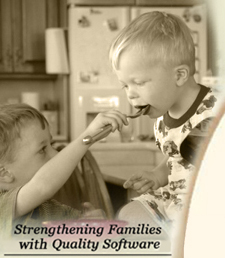
|
|
|

|
|

Eggcellent Tips for Safe Easter Eggs
By Camille Rhoades
 Whether you’re hopping down the bunny trail or cruising down the supermarket aisle, remember these guidelines from the American Dietetic Association to help ensure your Easter baskets and shopping baskets are full and safe.
Shopping
Inspect your eggs.
Before you buy eggs, open the carton and make sure none of them are cracked.
Separate eggs from raw meat.
Starting in your grocery cart, keep eggs and other foods separate from raw meat, fish, seafood and poultry. In your refrigerator, store eggs in cartons and keep them away from meat and poultry that might drip juice.
Preparation
Wash your hands.
Before any step in preparing Easter eggs — cooking, cooling, dyeing and hiding — wash hands thoroughly in warm, soapy water.
Cook to completion
To hard-boil eggs properly, bring a pot of cold water and eggs to a rapid boil, then remove from heat. Let eggs stand in water for 15 minutes. Eggs are ready when white and yolk are completely set.
Storage
Store properly.
Store Easter eggs in the refrigerator. Like other high-protein foods, eggs shouldn’t sit out at temperatures of 40 degrees Fahrenheit or higher for longer than two hours.
Decorating
Decorate carefully.
After washing your hands, handle eggs carefully while decorating to avoid damage. Cracked eggs invite bacteria. If you plan to eat your creations, decorate the eggs and refrigerate them promptly.
Hide and Seek
Hide strategically.
If an Easter egg hunt is in your plans, hide eggs so they stay clear of pets, dirt and other sources of bacteria. Don’t hide eggs more than an hour in advance of the hunt if you plan to eat them. Throw away eggs that are cracked, dirty or have been unrefrigerated for more than two hours. Also keep track of where you hid them. Nobody wants to find that last lost eggs a few days later! Tip: To be extra cautious, cook two sets of eggs: one for hiding and another for eating.
Other Tips
Discard eggs after a week.
Store eggs on a shelf inside the refrigerator, not on the door. Hard-boiled eggs — in the shell or peeled — do not keep as well as raw eggs, so discard any leftover Easter eggs after one week.
Whether preparing, serving or hunting for eggs, it’s easy for everyone to have a splendid Easter celebration while staying safe.
Source: www.eatright.org
It’s comforting when life just feels so much bigger than you are to have something quick that your family will enjoy.
If you have any additional tips that you'd like to add, please post them on the Cook'n Club Forum (if you're a Cook'n Club Member)...or e-mail them to Dan@dvo.com.
Join the Cook'n Club!
An unbeatable value with exclusive benefits for members only.
Enjoy articles like this and many other benefits when you join the Cook'n Club.
|
Cook'n Software Also Available At:
      
|
|
|
|














 Whether you’re hopping down the bunny trail or cruising down the supermarket aisle, remember these guidelines from the American Dietetic Association to help ensure your Easter baskets and shopping baskets are full and safe.
Whether you’re hopping down the bunny trail or cruising down the supermarket aisle, remember these guidelines from the American Dietetic Association to help ensure your Easter baskets and shopping baskets are full and safe.